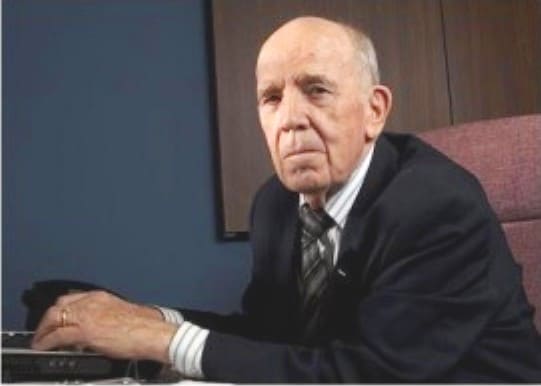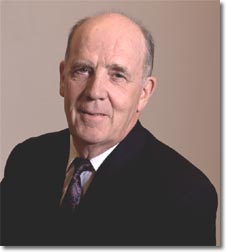

When things do go wrong, the finger of blame is usually pointed at its management team and at the senior member of that team in particular. He or she will be referred to as the Chief Executive Officer (CEO) in this article. It seldom gets pointed at the board of directors to whom the CEO reports.
One of the reasons for this oversight, particularly in the high technology industry, where detailed industry knowledge is an asset, is that this knowledge is often difficult to acquire. The problem is often worsened by the practice of appointing directors for their “window dressing” value as opposed to their value as corporate governors.
The building of a good board is not a trivial task. The first question that typically gets asked about appointing the first slate of directors is “When is an outside board needed?” The answer to that is the minute that the company accepts investment capital from someone other than the founders. The second question is “What does a board do?” It can (and should) do things like mentor the CEO, approve an annually updated strategic plan that extends at least three years into the future, approve a one year operational plan and ensure that there is a rigorous forecasting system in place that alerts the senior management team to possible performance problems.
The third question typically refers to the makeup of the board. Board members should have a diversity of skills similar to those required in the company’s management team, usually Sales/Marketing, Research and Development, Operations, and Finance and Administration.
There are many more questions that should be answered about boards and the governance that they should provide on behalf of company stakeholders, but the key one is “Does Canada have the appropriate pool of board talent to grow a world class high technology industry?” We talk a great deal about a skills shortage in the industry, but seldom does the discussion ever extend to the director level. If we were really honest about the situation, we would have to admit that we have too much window dressing and not enough results-oriented governance.
And while we are assessing the situation, we might remind ourselves that Steve Jobs was a strong believer in having a good board that understood the challenges and the opportunities that he faced. Last time I checked it worked out pretty well for shareholders of Apple
 Denzil Doyle has been involved in research and development, sales and marketing, corporate management, angel and venture capital investing across Canada. He was the founding president of Digital Equipment Canada and during the eighteen years that he directed it, it evolved into a multi-faceted company with annual sales in excess of 160 million dollars. Following that career, he established Doyletech Corporation in 1982 for the purpose of assisting Canadian enterprises (both private and public) in the building of a stronger high technology industry in Canada. In 1982, he also co-founded Instantel Inc., a supplier of electronic instrumentation. From 1995 to 2005, as Chairman of Capital Alliance Ventures Inc., an Ottawa-based venture capital firm, he led investments in technology companies in Ottawa and elsewhere in Ontario. He has served on the board of directors of Med-Eng Systems, Newbridge Networks, Mitel, Leigh Instruments, GEAC Computer, Cadabra Design Libraries, TalentMap, Rockcliffe Research, BTI Bubble Technologies, CAL Corporation, West End Systems, Mobile Data International, Instantel Incorporated, Gennum Corporation, International Datacasting Corporation, Vitana, among many others. In recognition of his pioneering efforts in the development of the Ottawa-Gatineau technology community, he received an Honorary Doctorate of Engineering from Carleton University at its 1981 spring convocation. In 2001, he was granted fellowship in the Engineering Institute of Canada. In 2002, he was awared the Lifetime Achievement Award for Innovation at the NRC Regional Innovation Awards. In 2005, he was invested as an Officer of the Order of Canada.
Denzil Doyle has been involved in research and development, sales and marketing, corporate management, angel and venture capital investing across Canada. He was the founding president of Digital Equipment Canada and during the eighteen years that he directed it, it evolved into a multi-faceted company with annual sales in excess of 160 million dollars. Following that career, he established Doyletech Corporation in 1982 for the purpose of assisting Canadian enterprises (both private and public) in the building of a stronger high technology industry in Canada. In 1982, he also co-founded Instantel Inc., a supplier of electronic instrumentation. From 1995 to 2005, as Chairman of Capital Alliance Ventures Inc., an Ottawa-based venture capital firm, he led investments in technology companies in Ottawa and elsewhere in Ontario. He has served on the board of directors of Med-Eng Systems, Newbridge Networks, Mitel, Leigh Instruments, GEAC Computer, Cadabra Design Libraries, TalentMap, Rockcliffe Research, BTI Bubble Technologies, CAL Corporation, West End Systems, Mobile Data International, Instantel Incorporated, Gennum Corporation, International Datacasting Corporation, Vitana, among many others. In recognition of his pioneering efforts in the development of the Ottawa-Gatineau technology community, he received an Honorary Doctorate of Engineering from Carleton University at its 1981 spring convocation. In 2001, he was granted fellowship in the Engineering Institute of Canada. In 2002, he was awared the Lifetime Achievement Award for Innovation at the NRC Regional Innovation Awards. In 2005, he was invested as an Officer of the Order of Canada.
Leave a Reply
You must be logged in to post a comment.



 Share
Share Tweet
Tweet Share
Share




Comment